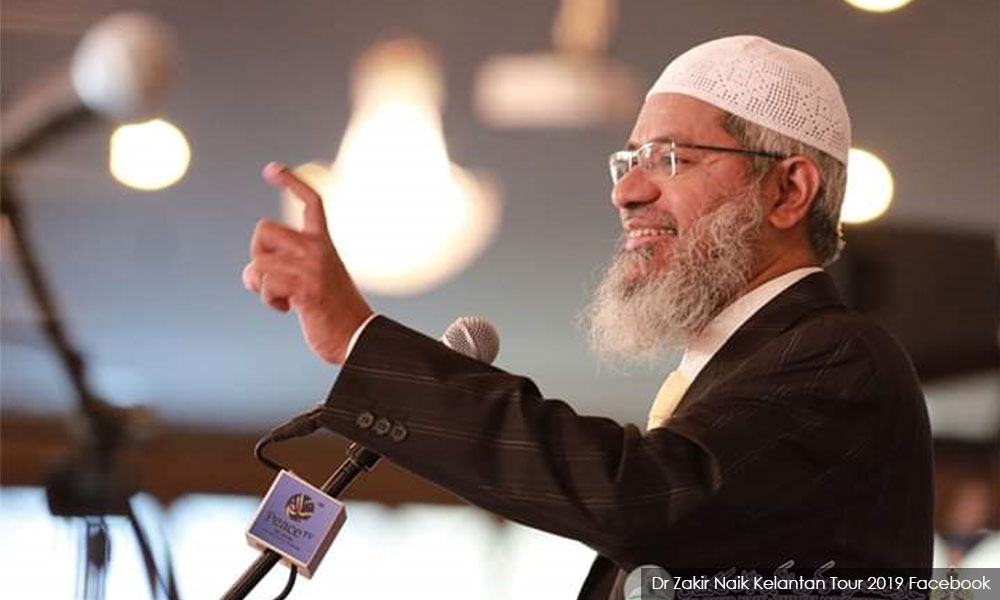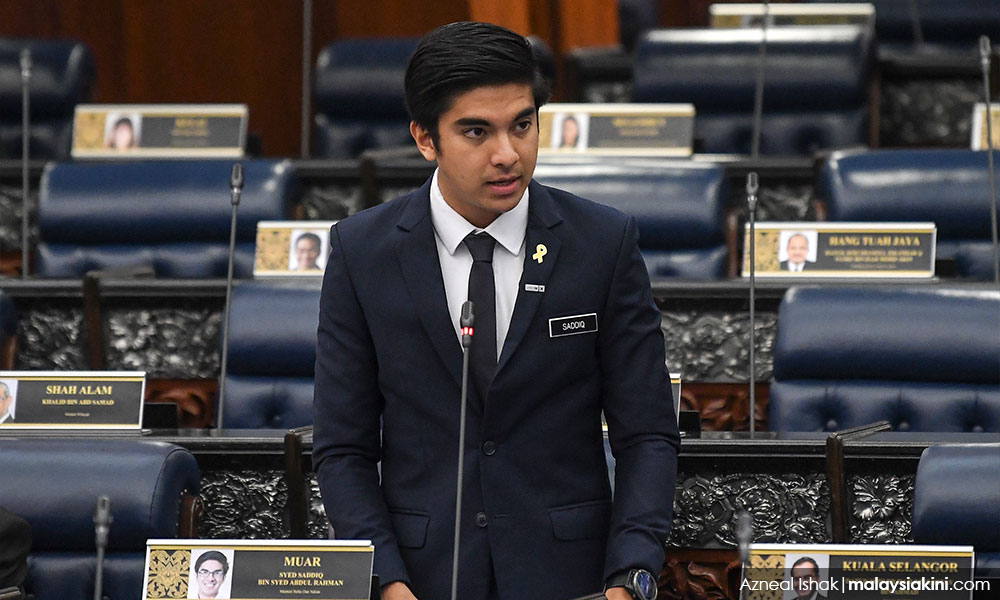
In 2016, in response to the move to ban a lecture by controversial preacher Dr Zakir Naik, I said that he should be allowed to continue with the lecture. I said at that time “Let Zakir Naik speak. Let him exercise his human rights to free speech, even if some of us find his views highly objectionable.”
At that time, the issue was not whether he should be deported back to India. The issue was solely whether he should be allowed to continue with his lecture. At the time, it had not been revealed that Dr Zakir Naik was accorded Permanent Residence (PR) status by the previous Government.
Three years later, when Zakir Naik questioned the loyalty of Malaysians of Indian ethnicity, and referred to Malaysians of Chinese ethnicity as ‘guests’ who should ‘leave’ before him, I join the chorus of criticism against the preacher.
His remarks were the proverbial straw that broke the camel’s back. We cannot allow such comments to be made against our fellow Malaysians. Especially since the fundamental freedom of free speech and expression under Article 10(1)(a) of the Federal Constitution is reserved exclusively to citizens.
That is not to say that non-citizens cannot express themselves. But the constitutional protection is not specifically accorded to them. Especially not to disparage Malaysians.

The backlash against Dr Zakir Naik has come from all segments of society. Political leaders like Syed Saddiq Syed Abdul Rahman (above), Minister for Youth and Sports, Nik Nazmi Nik Ahmad, MP for Setiawangsa, and Shahril Hamdan Suffian, Vice Chief of Umno Youth have criticised Dr Zakir, and some called for him to be deported back to his country of origin.
Non-politicians, too, have weighed in. Many Malay Malaysians rebuked Zakir Naik for his comments, saying that non-Malays are not ‘guests,’ but family. To paraphrase a tweet – yes we may have problems and issues between the communities, but we will solve those issues as siblings.
The past few weeks have seen quite severe tension between the races as a result of various issues such as the teaching of Jawi in school and an accident which resulted in death. Yet, Dr Zakir’s comments appeared to have united Malaysians; we all can agree that he cannot stay.
So if he cannot stay here, what can be done?
There have been concerns expressed that if we were to deport Dr Zakir to his home country of India to face charges, he might not be able to go through a fair trial. There are also those who say that his life might be in danger.
The Government may not want to deal with an undesirable situation of deporting him. Thus, one solution would be for the Government to revoke the Indian national’s permanent resident (PR) status. By doing so, he would have no choice to leave the country, and find another country that can shelter him.
Certainly, the charges against Dr Zakir has not been proven. Nor are the allegations that link him to terrorism. These may not be reasons to revoke his PR.
But revoking his PR is valid on the ground that his presence in the country has prejudiced public order and is a threat to racial harmony. Such grounds are provided for under the Immigration Act.
Whatever it is, the Government should consider all options available and make the right decision when it comes to Dr Zakir Naik.
SYAHREDZAN JOHAN is a civil liberties lawyer and political secretary to Iskandar Puteri MP Lim Kit Siang. - Mkini


No comments:
Post a Comment
Note: Only a member of this blog may post a comment.